As Americans chowed down on hot dogs and watched fireworks light up the sky this summer, a group of men and women in Juba, South Sudan, were also celebrating America’s Independence Day by wearing red, white, and blue. They are part of the 59 Days of Independence Project, a global initiative that invites people of all ages, professions, and nationalities to celebrate the independence days of 59 countries that once gained freedom from British colonization. Perhaps the most noteworthy part of the project is that people around the world are commemorating the independence days of countries other than their own.
So far, the events and acts have been big and small, ordinary and extraordinary. Teachers and students from the United States, for example, hiked to the top of a mountain carrying the flag of Guyana on Guyana’s independence day. A book club will be reading a book by an Indian author and meeting to discuss it on India’s independence day. The Ngecha Artists Association in Kenya created a wall mural that reads “All Kenya Salutes Grenada” and unveiled it on Grenada’s independence day. A woman in Nicaragua wrote a message to the people of Sri Lanka in the sand. A poet from Minnesota asked 49 other poets to write haikus inspired by the Gambia and posted them to digital billboards on the Gambia’s 49th independence day. These celebrations are a symbolic act intended to create a vision of a world that believes in “freedom for all, not just for me.”
The most noteworthy part of the project is that people around the world are commemorating the independence days of countries other than their own.
While the project uses British colonization as the initial, common factor connecting seemingly distant countries and cultures, it is really about resisting colonization in all of its forms, including that which is based on race, class, religion, gender, and nationality. This is evident on the 59 Days of Independence Facebook page. While nearly 7,000 people have expressed support through comments and Likes, others have taken the opportunity to bring attention to the fact that some people in their country are still not free due to poverty, oppressive governments, and systemic violence against women, among other things. Our hope is that, as we learn more about each other and each other’s right to independence, it becomes increasingly difficult to support oppression in any form.
Over the first half of 2014, we have celebrated national independence days for Ireland, Australia, Sudan, South Sudan, Myanmar, Nauru, Sri Lanka, Grenada, the Gambia, Saint Lucia, Brunei, Kuwait, Ghana, Mauritius, Zimbabwe, Sierra Leone, South Africa, Jordan, Guyana, Tonga, the Seychelles, Canada, Somalia, the United States, Malawi, the Solomon Islands, the Bahamas, and Kiribati. The response has exceeded all expectations. Over 600,000 people have seen the posts on Facebook and over 2,700 people from all over the world are currently following the page. While national identities are often used to separate people, this project aims to build connections.
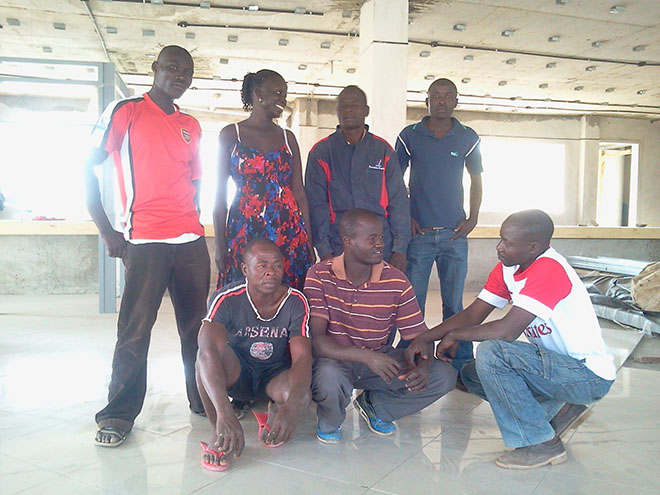
Tyrus Salva and friends wear red, white, and blue in Juba, South Sudan, to celebrate for Americans on the Fourth of July.
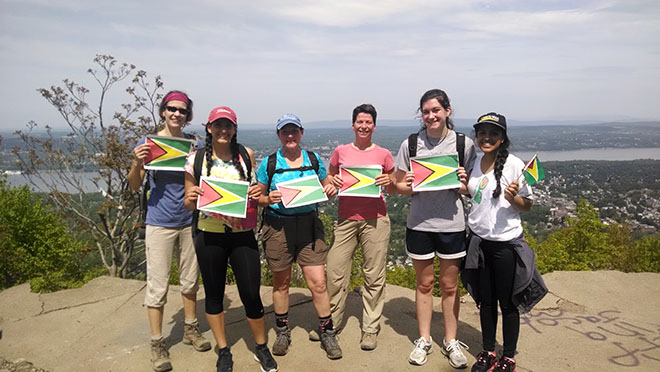
Lori Beer, Maribel Pregnall, and students climbed to the top of a mountain in New York State carrying the flag of Guyana.

Anne Esse celebrates Sri Lanka’s independence day from Nicaragua.
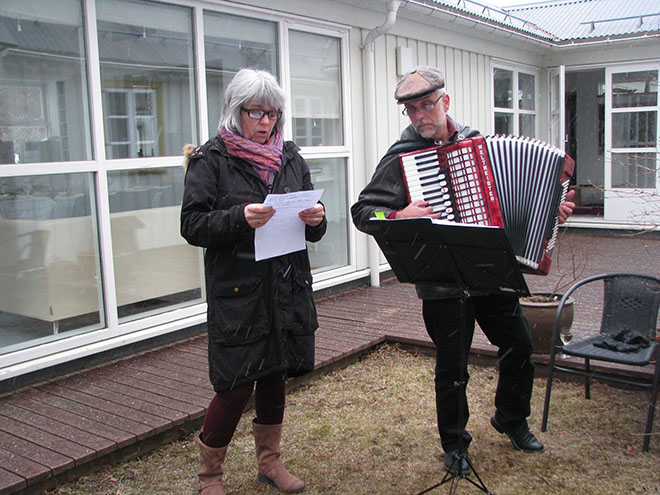
Solveig Hrafnsdóttir and friends celebrated Ireland’s independence in Iceland by performing Irish music and cooking Irish food.
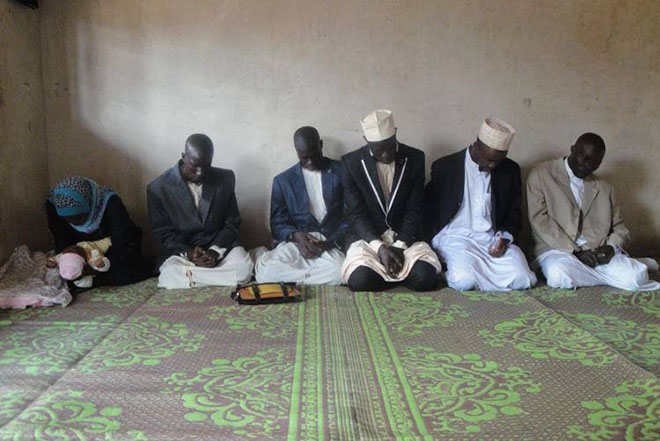
In Uganda, a group of friends dedicate a special prayer to the people of Kuwait on Kuwait’s independence day.
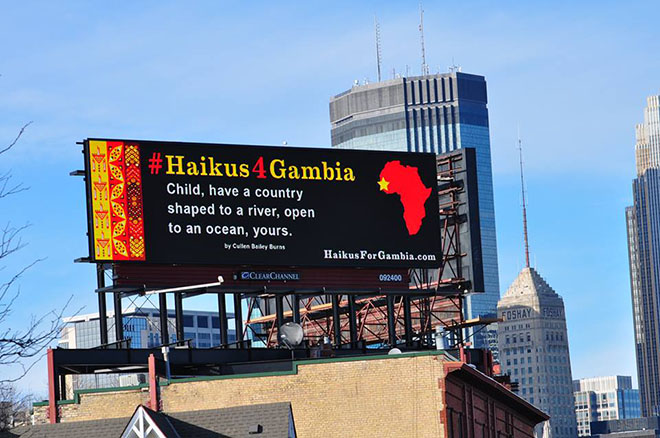
IBé invited 49 poets to write haikus inspired by the Gambia and posted them to digital billboards on the Gambia’s 49th independence day.
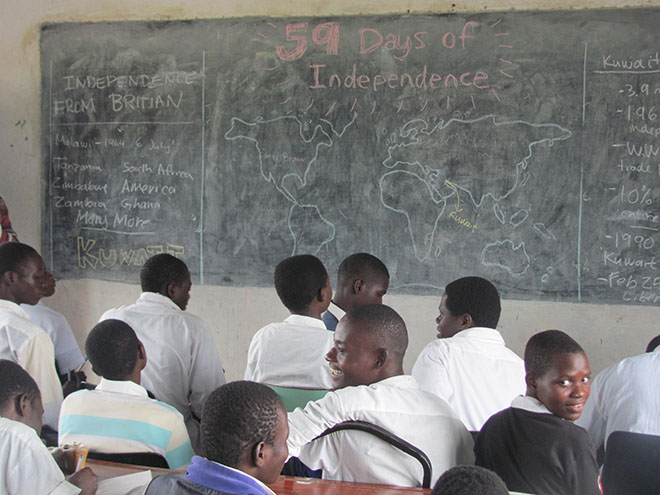
Students in Malawi learn about Kuwait on Kuwait’s independence day.
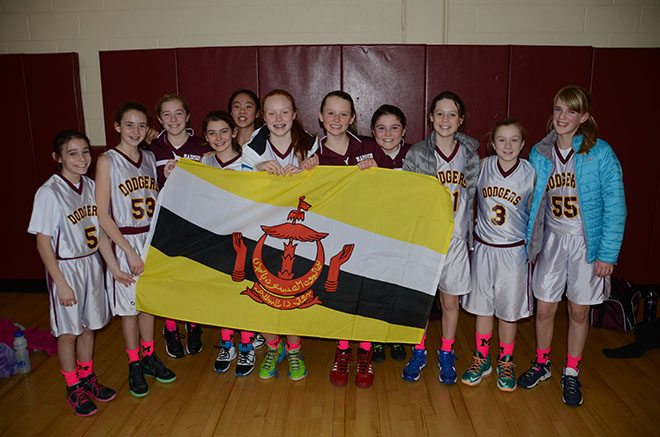
Kameron and Delaney Lloyd dedicate their basketball game to the people of Brunei on Brunei’s independence day.

Heather Layton and Brian Bailey read Running for My Life: One Lost Boy’s Journey From the Killing Fields of Sudan to the Olympic Games and then took their first run on the beach carrying the flags of Sudan and South Sudan.
There are still 32 independence days to go in 2014:
July 22: Maldives
July 23: Egypt
July 30: Vanuatu
August 06: Jamaica
August 14: Pakistan
August 15: India
August 19: Afghanistan
August 31: Malaysia
August 31: Trinidad & Tobago
September 06: Swaziland
September 19: Saint Kitts & Nevis
September 21: Belize
September 21: Malta
September 30: Botswana
October 01: Cyprus
October 01: Tuvalu
October 01: Nigeria
October 03: Iraq
October 04: Lesotho
October 09: Uganda
October 10: Figi
October 24: Zambia
October 27: St. Vincent & the Grenadines
November 01: Antigua & Barbuda
November 03: Dominica
November 30: Barbados
November 30: Yemen
December 02: United Arab Emirates
December 09: Tanzania
December 12: Kenya
December 16: Bahrain
December 18: Qatar
TO PARTICIPATE
1. Choose a country other than your own from the list above and email us with your country of choice at hlayton@mail.rochester.edu. We are encouraging people to choose a country that they know less about.
2. Design any form of celebration, big or small, for that country and have it on that country’s independence day. This may be something that you are already doing, just dedicated to your country of choice.
3. Email us photos of the act/event as soon as possible. We will post them to the 59 Days of Independence Facebook page and boost them to the country, where approximately 15,000 people will see that you celebrated for them on their independence day.





